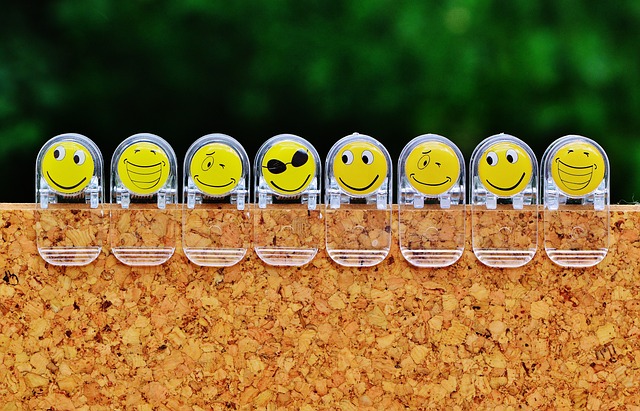Family is supposed to be a place of love and belonging, but in enmeshed families, love comes with invisible chains. The lines between where you end and where your family begins are blurred, and their emotions become yours to carry. Their moods dictate your peace, their struggles become your battles, and their approval feels like survival.
You feel tethered to them—not just physically, but emotionally, mentally, and even spiritually. Even when you’re away, they live inside your mind, shaping your choices, making you second-guess yourself, and pulling you back into old roles. You long to be free, yet the moment you try to step away, a wave of guilt, anxiety, or fear stops you.
This is enmeshment. And to untether from it, you first have to understand why you are tethered in the first place.
How and Why We Tether
Tethering doesn’t happen by choice—it happens because, at some point, it was necessary. Enmeshment often forms in childhood, when a parent or caregiver unconsciously (or consciously) teaches a child that their worth is tied to how well they serve the family’s emotional needs. The child learns that their job is to keep the family stable, to fix problems, to absorb the pain of others, or to suppress their own needs for the sake of keeping the peace.
We tether because:
- our worth is tied to how well you meet their emotional needs. If they are upset, you feel responsible. If they are happy, you feel relief.
- Boundaries feel like betrayal. Any attempt to assert independence triggers guilt or anxiety because, in enmeshed systems, individuality is seen as disloyalty.
- You were conditioned to believe their emotions are your responsibility. When you were younger, withdrawing emotionally may not have felt like an option—it might have led to withdrawal of love, anger, or emotional manipulation.
Over time, this creates a loop where their emotions dictate your sense of peace. Even when they aren’t around, their voices, opinions, and reactions live inside your head, keeping you emotionally entangled.
The tether is emotional, but it has very real consequences. It affects your sense of identity, your ability to trust your own needs, and your relationships with others. You might find yourself drawn to people who feel familiar—partners or friends who also expect you to carry their emotions, or situations where you continue playing the role of the fixer, the rescuer, or the one who always bends to keep the peace.
1. Start Recognizing When You’re Tethering
Every time you feel responsible for their emotions, every time you catch yourself anticipating their reactions before making a decision, every time guilt makes you question a boundary—you are tethering. Start noticing these moments. Awareness is the first step to change.
Ask yourself:
- Is this my emotion, or am I absorbing theirs?
- Would I feel this guilt if I weren’t conditioned to feel it?
- What would I do right now if I weren’t afraid of disappointing them?
When you catch yourself tethering, pause. You don’t have to change your actions immediately, but just noticing the pattern starts to loosen its grip.
2. Separate Their Emotions From Yours
Your family’s happiness is not your responsibility. Their sadness, disappointment, or anger are not reflections of your failure. They are human beings who must learn to handle their own emotions, just like you do.
If they are upset because you set a boundary, that’s their discomfort to process—not yours to fix. If they guilt-trip you for not meeting their expectations, remind yourself: I am not responsible for how they choose to react.
Emotional detachment doesn’t mean you stop caring. It means you stop carrying.
3. Start Small With Boundaries
If setting boundaries feels terrifying, start with small ones. Let a text sit unanswered longer than usual. Say no to something minor, just to practice tolerating the discomfort. Choose not to explain yourself when you make a decision.
The key is to build tolerance for the guilt that comes with it. Because the guilt isn’t proof that you’re doing something wrong—it’s proof that you’re breaking a dysfunctional cycle.
4. Redefine Love and Loyalty
Enmeshed families make you feel like independence equals disloyalty. That love means self-sacrifice. That choosing yourself is selfish.
None of that is true. Real love allows for individuality. Real loyalty doesn’t require you to erase yourself. Real connection is not built on guilt and obligation—it’s built on choice.
When your family tries to pull you back in with guilt, manipulation, or emotional pressure, remind yourself: I am not betraying them by being my own person.
5. Create an Emotional Life Outside of Them
When you’ve spent your whole life orbiting around your family’s emotions, it can feel impossible to step away—because without them, where do you go?
Start by building an emotional life that exists beyond them. Deepen friendships that aren’t tied to your family. Find activities that bring you joy, separate from their approval. Develop interests that belong entirely to you. The more you create an identity outside of their expectations, the less power they will have over you.
6. Work With the Guilt, Not Against It
Guilt will come. It will whisper that you are selfish, that you are hurting them, that you are making a mistake. But guilt is just a symptom of conditioning—it’s not the truth.
Instead of letting guilt control you, acknowledge it: I feel guilty, but that doesn’t mean I’ve done something wrong. Over time, as you reinforce new patterns, the guilt will lessen, and you will begin to trust yourself more.
Healing Is a Process, Not a Single Step
Untethering from an enmeshed family isn’t a one-time event—it’s a gradual process of reclaiming your sense of self. Some days, you’ll feel strong and independent. Other days, the pull of old patterns will feel overwhelming. That’s normal.
The key is to keep moving forward, even when the guilt is loud. To remind yourself that love should not feel like a burden. To trust that you are not abandoning your family—you are simply choosing to exist as your own person.
You are allowed to be free. You are allowed to have your own emotions, your own needs, your own life. You don’t have to keep shrinking yourself to hold their world together. It’s time to untether.













